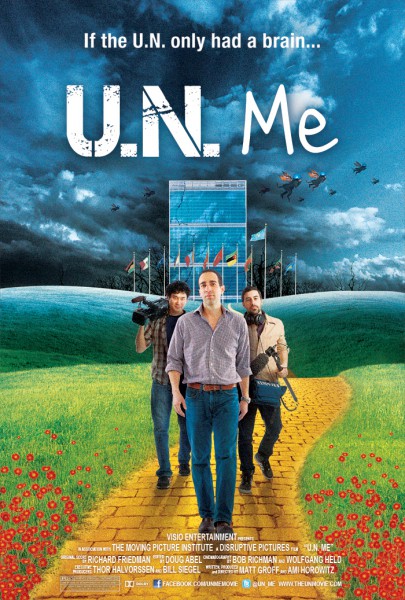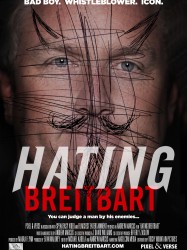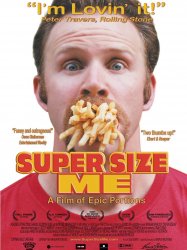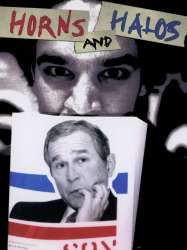U.N. Me is a american film released in USA on 1 june 2012
U.N. Me (2012)

If you like this film, let us know!
U.N. Me is a documentary film about the United Nations by first-time filmmakers Ami Horowitz and Matthew Groff, which premiered at the International Documentary Film Festival Amsterdam in November 2009.
The documentary – or "docutainment" according to Horowitz – which began production in 2006, is a critique that depicts the United Nations as an organization that has drifted from its founding principles to the point where it now "enables evil and sows global chaos." The film follows Horowitz and Groff as they travel and look to expose the numerous scandals and cases of abuse of the U.N. Through interviews with involved parties and archived footage, they provide a look into events such as a shooting that has gone forgotten, where UN soldiers opened fire on unarmed protestors and the “Oil-for-Food” program. Also featured is evidence of the use of UN funds and equipment to support terrorist activity through complacency or complicity, including video footage of insurgents loading assault rifles and RPGs into a UN vehicle to make an escape.
Some scenes of U.N. Me were shot inside the United Nations headquarters building in New York City.
Comments
Leave comment :
Suggestions of similar film to U.N. Me
There are 7799 films with the same themes (including 893 films with the same 2 themes than U.N. Me), to have finally 70 suggestions of similar films.If you liked U.N. Me, you will probably like those similar films :

Hating Breitbart (2012)
Origin USA
Genres Documentary
Themes Documentary films about historical events, Documentary films about politics, Political films
Actors Orson Bean, Alley Mills, James O'Keefe, Andrew Klavan
Rating64%





 , 55minutes
, 55minutesDirected by Anne Aghion
Themes Films set in Africa, Films about racism, Documentary films about racism, Documentary films about law, Documentary films about war, Documentary films about historical events, Documentaire sur une personnalité, Documentary films about politics, Political films
Rating66%





The first film in this award-winning trilogy ventures into the rural heart of the African nation of Rwanda. Follow the first steps in one of the world’s boldest experiments in reconciliation: the Gacaca (Ga-CHA-cha) Tribunals. These are a new form of citizen-based justice aimed at unifying this country of 8 million people after the 1994 genocide which claimed over 800,000 lives in 100 days. While world attention is focused on the unfolding procedures, award-winning documentarian Anne Aghion bypasses the usual interviews with politicians and international aid workers, skips the statistics, and goes directly to the emotional core of the story, talking one-on-one with survivors and accused killers alike. In this powerful, compassionate and insightful film, with almost no narration, and using only original footage, she captures first-hand how ordinary people struggle to find a future after cataclysm.

Super Size Me (2004)
, 1h38Directed by Morgan Spurlock
Origin USA
Genres Drama, Comedy, Documentary
Themes Cooking films, Medical-themed films, Obésité, Films about the labor movement, Documentaire sur la cuisine, Documentary films about business, Documentaire sur la malbouffe, Documentary films about politics, Documentary films about health care, Documentaire sur le monde du travail, Films about disabilities, Political films
Actors Morgan Spurlock
Rating71%





Plus d'un tiers des enfants et des adolescents américains ont un problème de poids. Deux adultes sur trois aux États-Unis d'Amérique sont atteints de surcharge pondérale ou d'obésité. Comment les États-Unis sont-ils devenus aussi gros ? Les chaînes de restauration rapide sont souvent montrées du doigt mais plusieurs procès qui leur ont été intentés par des clients devenus obèses ont été perdus faute de preuves.

American Standoff (2002)
, 1h35Origin USA
Genres Documentary
Themes Films about the labor movement, Documentary films about politics, Political films
Rating74%





The Teamsters' strike against Overnite began on October 24, 1999. James P. Hoffa had been elected president of the Teamsters in the fall of 1998, and had campaigned on a promise to unionize Overnite and securing a contract for its 13,000 workers. The Teamsters represented only a fraction of Overnite's workers, but believed they could use other means to win company recognition of the union. Initially, about 2,000 workers walked the picket line in 12 states. The strike turned violent, however, and both sides accused the other of bribery, spying, intimidation and more. By August 2002, only 300 to 600 workers remained on strike. The Teamsters called the strike off without securing a contract or union recognition.

Genres Documentary
Themes Films set in Africa, Films about music and musicians, Films about racism, Documentary films about racism, Documentary films about law, Documentary films about music and musicians, Documentaire sur une personnalité, Documentary films about politics, Musical films, Political films
Actors Walter Cronkite, Hugh Masekela, Miriam Makeba
Rating73%





In the film, South African musicians, playwrights, poets and activists recall the struggle against apartheid from the 1940s to the 1990s that stripped black citizens of South Africa of basic human rights, and the important role that music played in that struggle. The documentary uses a mixture of interviews, musical performances and historical film footage. Among the South Africans who take part are Miriam Makeba, Abdullah Ibrahim, Hugh Masekela, Vusi Mahlasela and others.

500 Dunam on the Moon (2002)
Origin USA
Genres Documentary
Themes Films set in Africa, Films about religion, Documentary films about law, Documentary films about war, Documentary films about historical events, Documentaire sur une personnalité, Documentary films about politics, Documentary films about religion, Political films, Films about Jews and Judaism

Lullaby (1937)
Directed by Dziga Vertov
Genres Documentary
Themes Documentary films about politics, Political films
Rating67%






The New Rulers of the World (2001)
, 1h5Directed by John Pilger
Origin United-kingdom
Genres Documentary
Themes Documentary films about politics, Political films
Actors John Pilger
Rating77%





John Pilger explores the impact of globalisation, taking Indonesia as his prime example, a country that the World Bank described as a "model pupil" until its 'globalised' economy collapsed in 1998. Under scrutiny are the increasingly powerful multinationals and the institutions that back them, notably the IMF and The World Bank.

Born into Struggle (2004)
, 1h14Origin South africa
Genres Documentary
Themes Films set in Africa, Films about families, Films about racism, Documentary films about racism, Documentary films about law, Documentaire sur une personnalité, Documentary films about politics, Political films
In this documentary, the filmmaker Rehad Desai takes us on an intimate journey mapped out by the scars etched into his family's life from having a father who was intensely involved in politics. Barney Desai was a political hero during South Africa's struggle for freedom, yet as a father he was damagingly absent emotionally. Rehad spent most of his young life in exile and became politically active himself. On this intensely personal journey into his past, Rehad realizes he is following in his fathers footsteps as he reviews his relationship with his own estranged teenage son.

Horns and Halos (2002)
, 1h30Directed by Michael Galinsky
Origin USA
Genres Drama, Biography, Documentary
Themes Films about writers, Documentary films about historical events, Documentaire sur une personnalité, Documentary films about politics, Political films
Rating70%





 Connection
Connection